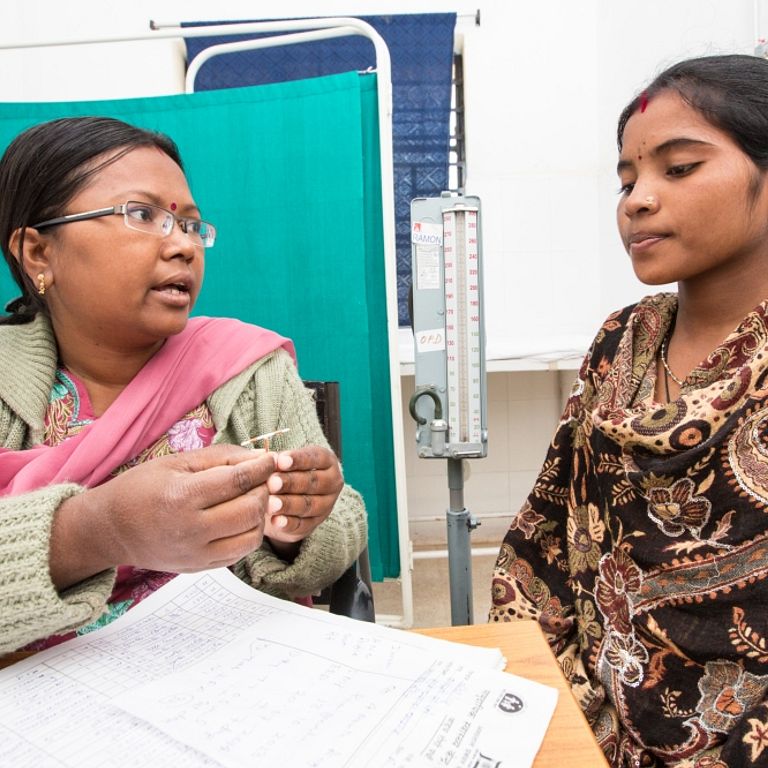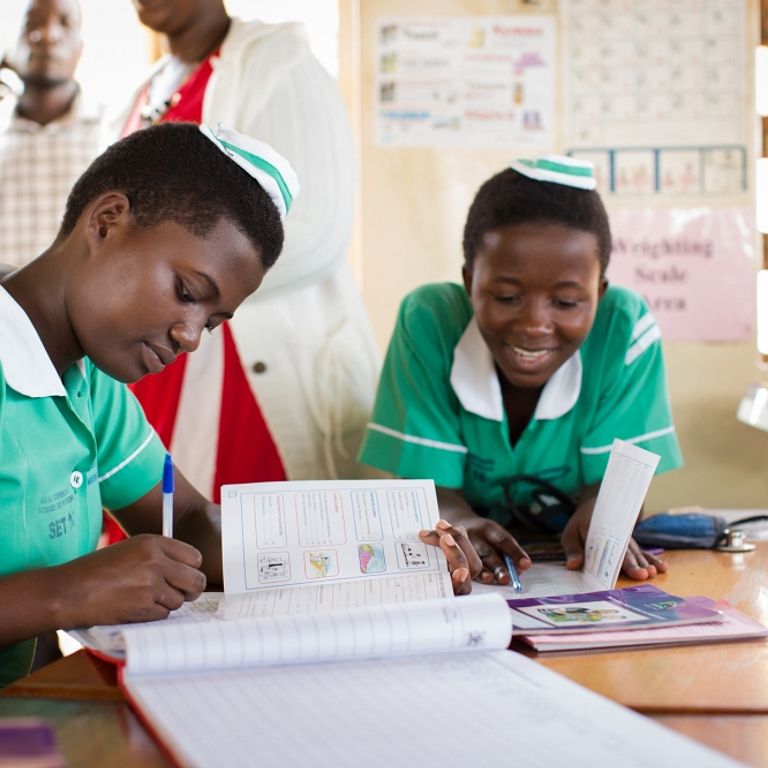USAID Boresha Afya—Lake and Western Zone

According to FP2020, the modern contraceptive prevalence rate in Tanzania is 31.7%. With 1.7 million people in Tanzania living with HIV, the country has made significant gains in access to medication for people living with HIV, and 84% of adults and 54% of children living with HIV are on antiretroviral treatment, according to UNAIDS.
The USAID Boresha Afya Lake and Western Zone was a five-year program aimed at improving the availability of and access to high-quality, respectful, and integrated health services in Tanzania. The program was led by Jhpiego, together with EngenderHealth and PATH. Together we supported over 1,800 health facilities across the seven regions of mainland Tanzania (Geita, Kagera, Kigoma, Mara, Mwanza, Shinyanga, and Simiyu) and 30 health facilities in Zanzibar.
The consortium worked to improve the delivery of high-quality maternal and obstetric care, SRH services (including adolescent and youth SRH), and malaria services at the facility, health system, and national levels through a mix of training, mentoring, and developing supportive national policies and guidelines. We did this by improving the enabling environment for health service provision, primarily by quickly translating policy into meaningful action. We increased the availability of high-quality, respectful, client-centered, and gender-sensitive integrated services at program-supported health facilities. And we expanded access to health services at the community level, in part by improving links between communities and health systems.

From October 2019 to September 2020, USAID Boresha Afya supported the Ministry of Health, Community Development, Gender, Elderly, and Children to disseminate the National Family Planning Costed Implementation Plan in the Kagera, Kigoma, Mara, Mwanza, and Shinyanga regions. This plan set four priorities, including improving postpartum family planning (FP), addressing social norms, reducing stock-outs, and increasing information about, access to, and use of contraceptives among adolescents. The program also trained master mentors in the Geita region on the Helping Mothers Survive Essentials for Labor and Birth module, which focused on essential intrapartum care including respectful care; infection prevention; assessment, classification, and support for women in labor; and immediate postnatal care. In collaboration with the the ministry and the respective council health management teams, USAID Boresha Afya follow-up with the surgeons trained on female sterilization (minilaparotomy) for certification.
To meet new realities brought about by COVID-19, USAID Boresha Afya, together with other partners, supported the ministry to develop a guide for healthcare providers on the provision of essential reproductive, maternal, newborn, child, and adolescent health services during the pandemic. The guide covers infection prevention and control principles and practices, service delivery, provision of pregnancy care (antenatal and malaria in pregnancy, labor, and delivery), and postnatal care.


